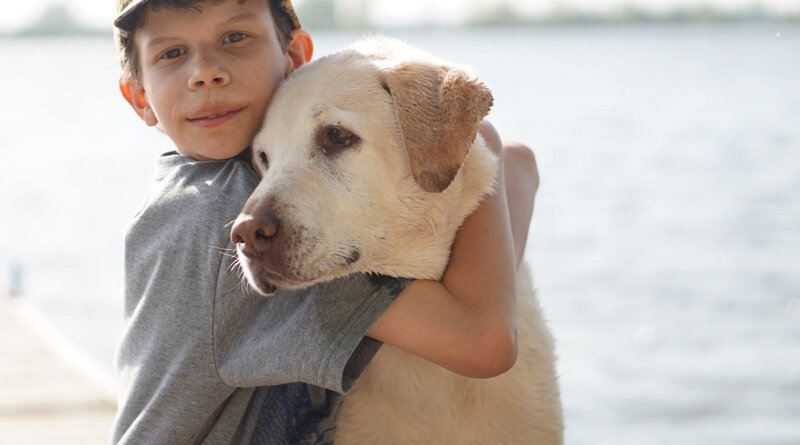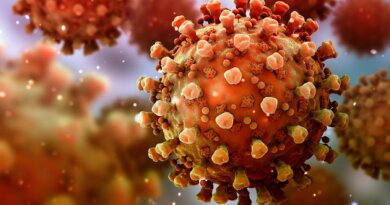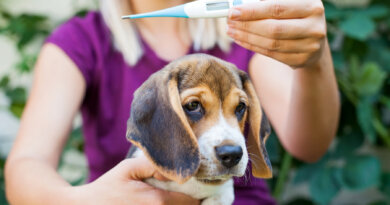On the Autism Spectrum? Get a Dog.
If you want a friend, get a dog. That comment was originally intended as a joke, but if you happen to be one of the millions of Americans on the autism spectrum, it could be the greatest piece of advice you’ll ever receive, says Annie Bowes, DVM. Bowes, a veterinarian in Post Falls, Idaho, has spent a lifetime dealing with the effects of autism, an experience she chronicles in her recently published book, Dogs & Autism (Future Horizons).
What is Autism Spectrum Disorder (ASD)?
“Explaining autism to someone who is neurotypical [people who don’t have autism] is much like explaining color to a person who is color-blind,” Bowes explained. “That’s because autism is a sensory issue, a part of us that doesn’t deal with language. Instead, it deals with feelings. Making matters worse, it’s stronger than language and words. Fortunately, this is precisely the cognitive function that dogs lead with and that makes them such perfect companions of those with autism.”
According to Bowes, autism affects the body’s limbic system and a set of neurons called amygala that live there. For people without autism, the brain’s frontal lobe, which houses logic, words and executive thinking, is dominant. For those on the autism spectrum, the world is a sensory place, as is the case with dogs.
For example, before a lightning storm, many dogs express fear and will hide; they are also known to sense earthquakes before the earth trembles. Warning a person of an impending seizure or diabetic sugar imbalance is in their repertoire, and they can sense when people are sad, happy or afraid, and respond accordingly.
GET THE BARK IN YOUR INBOX!
Sign up for our newsletter and stay in the know.
Scientist Temple Grandin, who is autistic, also describes how animals are similar to autistic people saying “autistic people don’t think in language, we think in pictures. During my thinking process I have no words in my head at all, just pictures. So, if you say the word “teapot,” I start to see teapots, like a teapot slide show of teapots. Animals don’t think in language; they are visual thinkers too. When you think in pictures, it has to be specific in order to form concepts.”
Social Benefits of Dogs for Those with Autism
“Everybody knows that it’s always nice to have a friend near who thinks like you do,” Bowes explained, “and that’s why those with autism benefit so much from having a dog. Dogs sense the world like we do, and don’t judge us or demand that we pull ourselves together. A dog senses what you need and gives it to you unconditionally.”
To a great extent, Bowes considers herself fortunate in her battle with the perception of her condition. Her father, who also has autism, spent years enduring a foster-care system that was ignorant of his problems and unwilling to understand. The one benefit he did enjoy, as well as an understanding he passed on to his daughter, was dogs.
“During the worst time in my father’s life, he got a dog, a black Labrador Retriever named Queenie,” Bowes recalls. “My father and Queenie were inseparable. Better yet, Queenie protected him and was his best friend, regardless of what was happening in his life. She loved him wholeheartedly and accepted him until her death. Perhaps best of all, however, was the fact that she helped teach him to be gentle and trusting, traits that endeared him to my mother and has made him successful as a father, businessman and friend.”
Bowes added that her father also recognized that she was like him and would benefit from the presence of a dog. “My father always made sure that I have had a dog my entire life,” Bowes said. “He understood that a dog’s love would make a huge difference in my life, so he fostered it.
“Acceptance is the one thing all parents should hope their children achieve, especially their children with autism, in fact, anybody outside of the social norm. Fortunately, acceptance isn’t something that comes with a high price tag. In fact, it can often come with four legs and a wagging tail. Further, I can say unconditionally that anyone with a dog in their home will see each member of the family bloom with their presence, whether there is a person with autism in that family or not.”
For Bowes, that first dog was a farm reject (he chased chickens) who originally came from a shelter. “Buford was a German Shepherd,/Saint Bernard mix who weighed in at more than 120 pounds. He was huge, but as intimidating as his size was to most people, he was a great protector me,” Bowes said. “When I started talking I talked to him. And because he wouldn’t correct me, I gained confidence in my speech. This helped me in my social interactions, and when a contact didn’t work out, I still had Buford to go back to.”
What has long been suspected by those with autism and other issues has only recently begun to be understood by science. In a study reported on in Newsweek , it is suggested that those who had childhood pets may be mentally healthier than those without.
Although studies on this topic are still in their early stages, the message is clear: On the Autism Spectrum? Get a Dog. Not only are they cheaper than therapists, drugs and counseling, but also, they cure the loneliness, sadness, and frustration experienced by so many people. In fact, dog owners are 0.6 times less likely to visit a doctor due to illness. This is thought to be due to the dog walking and other activities engaged in by those who lose weight, increase relaxation, and other benefits.
Even if you have weekly interactions with other types of animals such as horses, having a dog can be a great benefit since, in most cases, this contact is a daily occurrence.
Choosing the Best Dog for a Person with Autism
One question that Bowes is often asked is what dog breed is best for the person with autism. According to Bowes, the best dog for an autistic person is the one who fits the context. “In my work, I am constantly asked what the best breed is for individual households,” Bowes said. “The answer depends on the individual as well as the dog. Often, they’re a lot like the people they are with. You also have to know how to interact with them. This alone prevents a lot of problems, such as bites.”
She also points to the numerous online and published sources to help determine a choice. “In general, dogs are very predictable,” Bowes explained. “They have been bred for centuries to perform very specific tasks. If there’s anything you can count on, it’s a continuation of those characteristics. If you want a dog that will be patient and gentle, get a retriever, which was originally bred to patiently wait for a bird hunter. By contrast, if you want a dog that will be more independent and protective, a German Shepherd is ideal, since that breed was developed to herd animals.”
In 23 years of working as a veterinarian, Bowes says that she has never been bitten by a dog. “The key to avoiding bites is to select a dog wisely. You should always try to balance the type of dog you get with the type of household the dog will be living in. Getting a high-energy dog with a more relaxed home is inviting trouble. On the other hand, if you get a dog that has the type of personality that fits a lifestyle, you will have a friend for life.”





Now that many people are using smart phones, we can consider mobile phone positioning through wireless networks or base stations.